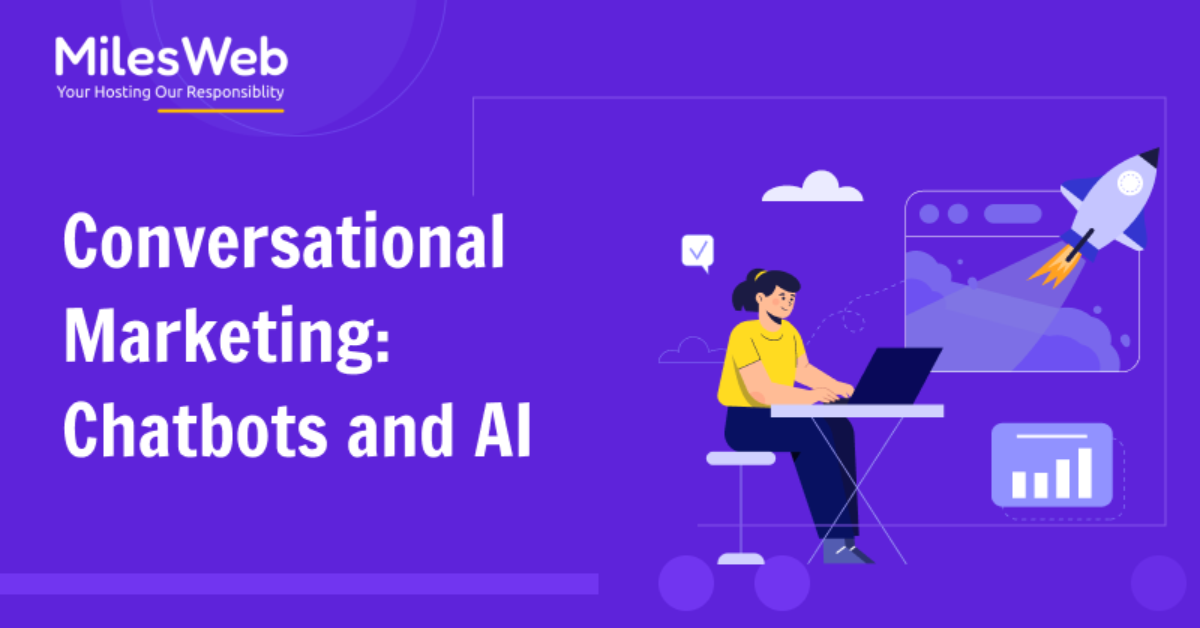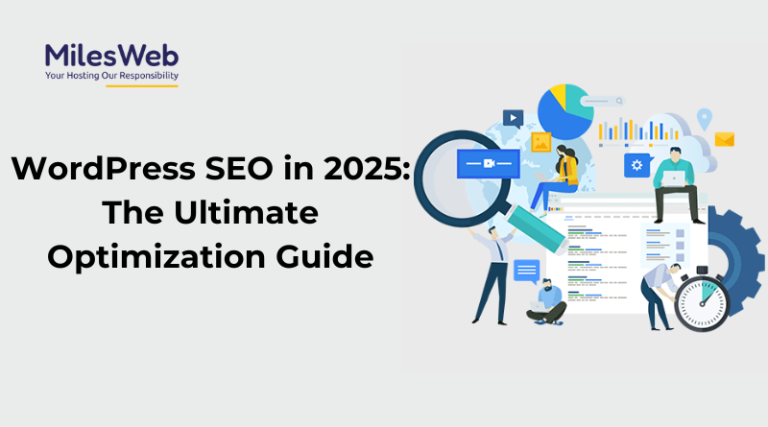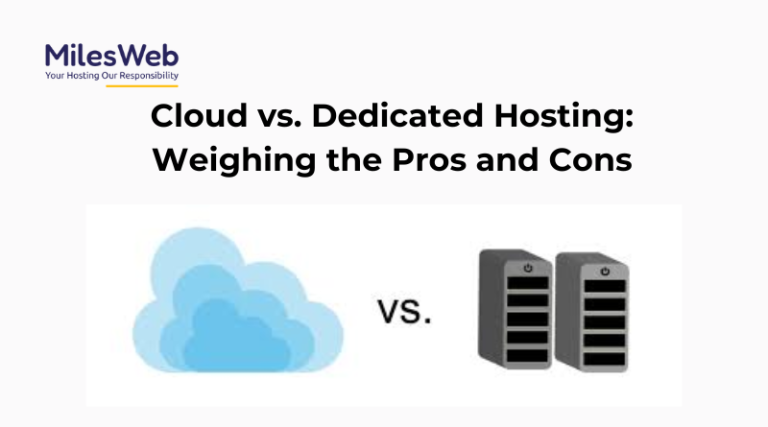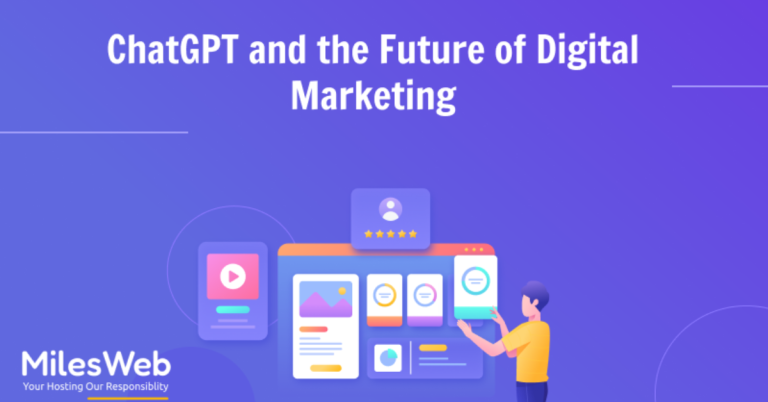Conversational Marketing: Chatbots and AI
In today’s modern era of continuous digital transformation, businesses and individuals are always looking for alternative approaches to improve user engagement. AI and chatbot-powered conversational marketing have surfaced as a turning point in this area. With its automated real-time conversation, companies can effectively engage customers and also offer tailored shopping experiences.
No matter if you own an eCommerce online store or a technology-driven platform powered by PostgreSQL hosting or Ruby on Rails web hosting, incorporating chatbots can drastically enhance customer engagement and lead generation.
In this blog, we’ll take a deep dive into conversational marketing and assess how AI and chatbot-driven conversational marketing are redefining the way businesses communicate with customers.
A Look into Conversational Marketing
Conversational marketing facilitates real-time, one-on-one communication to strengthen customer relationships. In contrast with conventional lead forms and late responses, organizations can deploy AI chatbots, chat applications, and voice assistants so that they can immediately interact with the customer. Here, the ultimate aim is to simplify the customer journey, increase user engagement, and maximize conversion rates.
How Chatbots Transform Conversational Marketing?
In conversational marketing, chatbots play an indispensable role because they function as a direct communication link that helps in increasing engagement with customers. Primarily, AI-powered chatbots are exceptionally valuable so that they can develop communication skills with individual customers and lead to more personalized shopping experiences. Chatbots help automate various processes, such as data collection and providing product information, which frees up time for time-consuming and challenging tasks along with crucial decision-making.
How AI Affects Conversational Marketing?
AI (artificial intelligence) supports chatbots by letting them understand natural language, assess customer feelings, and communicate by generating personalized responses. With the following benefits, businesses can improve in several ways:
- Increased User Satisfaction: AI-powered chatbots enable smooth interactions by interpreting user intent and providing contextual solutions.
- Insightful Data Analytics: AI interprets customer conversations to uncover valuable insights to enhance products and services.
- Multi-Channel Integration: Organizations can leverage Chatbots on a number of platforms such as websites, social media, and messaging platforms.
- Automated Lead Assessment: By analyzing user behavior, AI sorts and categorizes leads and allows sales teams to focus on the most promising prospects.
Advantages of Chatbot-Powered Conversational Marketing
Within the domain of conversational marketing, AI-powered chatbots help by engaging with users through human-like conversations, assisting them with questions, helping them complete purchases, and so on. The following are the major benefits of chatbot-powered conversational Marketing:
- 24/7 Support: Chatbots, unlike human representatives, work around the clock to ensure that customer questions are always answered.
- Immediate Responses: Customers no longer need to wait for email responses or call queue lines; chatbots offer immediate answers.
- Personalization: AI-powered bots scan user information to provide customized recommendations and answers.
- Scalability: Companies can manage thousands of questions at a time without further staff recruitment.
- Cost-Effectiveness: Chatbots minimize the requirement for large customer support staff, which saves operational expenses.
Limitations of Conversational Marketing
These are some of the challenges that organizations have to address while adopting conversational marketing, though it can also be advantageous:
- No-Human Touch: Even if AI is considerably developed, complicated inquiries requiring human communication will generally not be reversible by chatbots.
- Privacy Issues With Data: The data of customers must be respected so that they can be trusted.
- Cross-Platform Integration Problems: The integration of AI chatbots across various platforms may require advanced technical skills.
- Cost of Advanced AI Solutions: While less advanced chatbots are relatively cheap, conversational AI tools tend to be on the pricey side.
Business Use-Cases of AI Chatbots in Marketing
Companies from various industries are making use of AI chatbots to drive engagement as well as revenue. Some good examples include:
- E-commerce: Chatbots facilitate product suggestions, order status checking, and addressing queries.
- Healthcare: Chatbots, facilitated by AI, offer health counseling, schedule appointments, and assess symptoms.
- Finance: Chatbots assist customers with account management, transaction tracking, and addressing bank queries.
- Education: AI-infused chatbots facilitate course suggestions as well as assist students in seeking academic questions.
How to Improve the Effectiveness of Conversational
Marketing
Here are the best practices to maximize AI chatbots for businesses:
- Set Clear Objectives: Understand your business goals before applying for a chatbot.
- Personalize Interactions: With the help of valuable insights from artificial intelligence, personalize the message from the chatbot.
- Human Escalation: Allow a human agent to the customer about a complicated issue.
- Multi-Channel Optimization: Implement chatbots across websites, social media networks, and messaging apps.
- Observe and Optimize: Periodically check its performance based on the feedback of the user.
Conversational Marketing: Emerging Trends
Several trends shape Conversational Marketing with AI development. Some of the currently emerging trends include:
- Voice Assistants: AI-enabled voice assistants constitute a customer interaction interface.
- AI-Powered Emotional Analysis: AI analyzes customer feelings, therefore modifying the responses of the chatbots.
- Hyper-Personalization: AI-based chatbots enhance the in-depth analysis of customer data in order to further tailor a shopping experience.
- CRM System Integration: Integration of chatbots seamlessly into CRM platforms will aid in nurturing leads.
Key Takeaways
Unlike previous models, companies can now hold genuine conversations with their clients, thanks to conversational marketing. It can be anything, from instant help to automated lead generation; all these AI-powered chatbots have enhanced efficiency and scalability in business and have personalized it. In fact, with the changing technology of AI, conversational marketing continues to gradually redefine customer interactions into more impactful and intuitive forms of instantaneous communication. This could be an online enterprise, a SaaS provider, or even a traditional business site; chatbots will raise customer engagement to the next level in combination with the increased performance of business operations.







